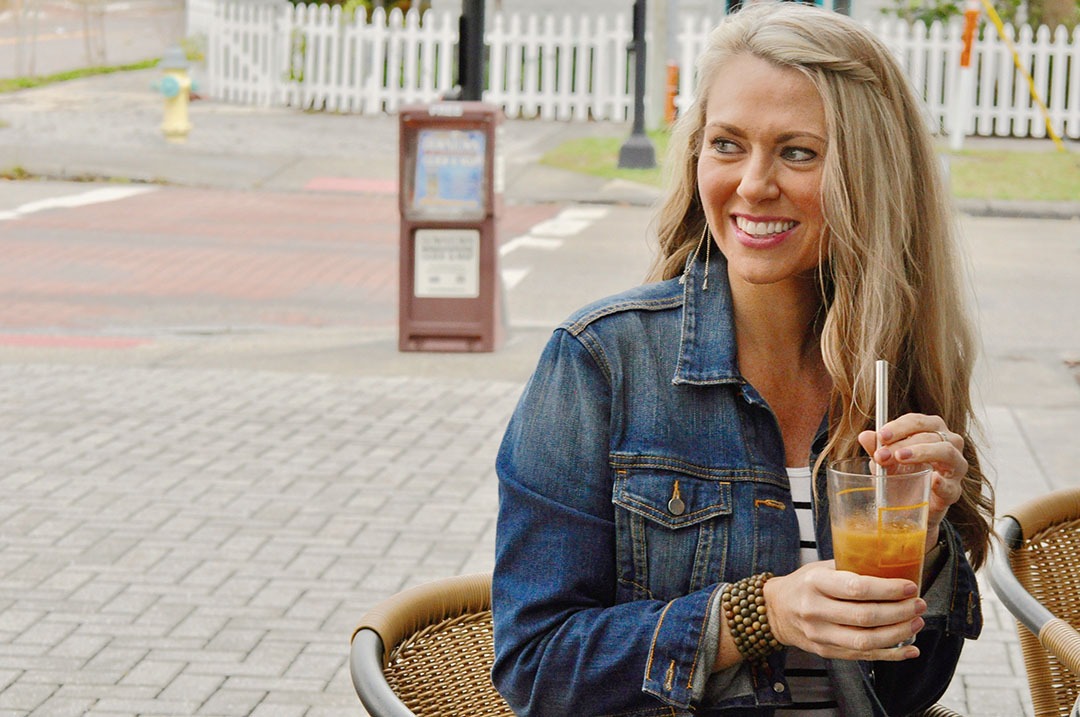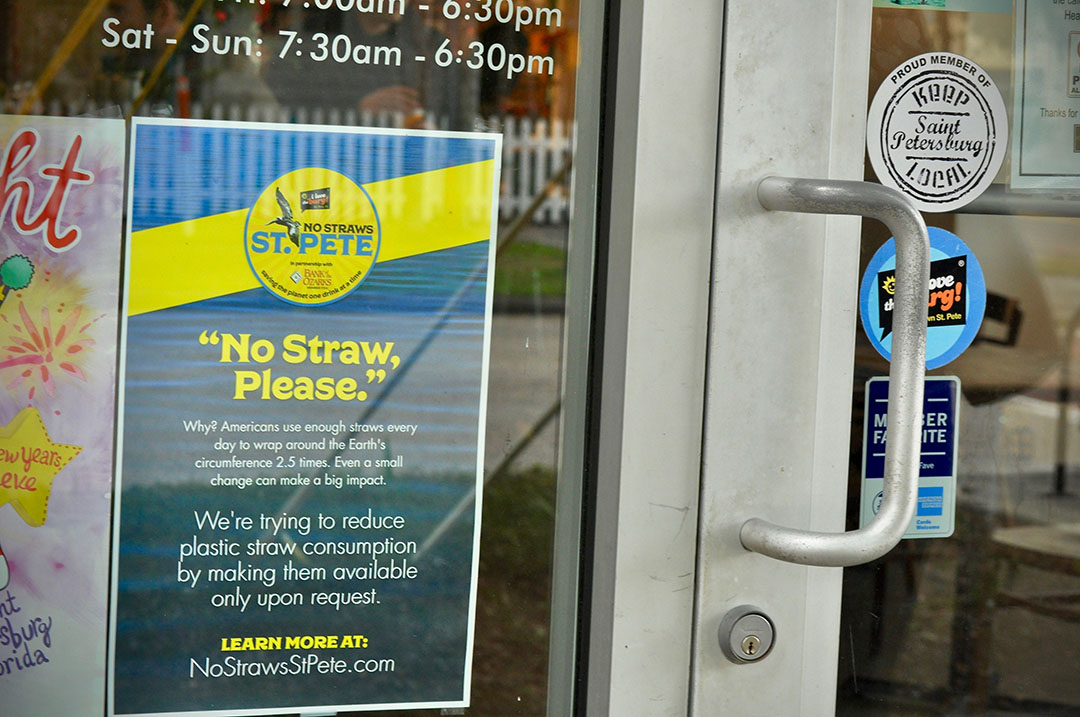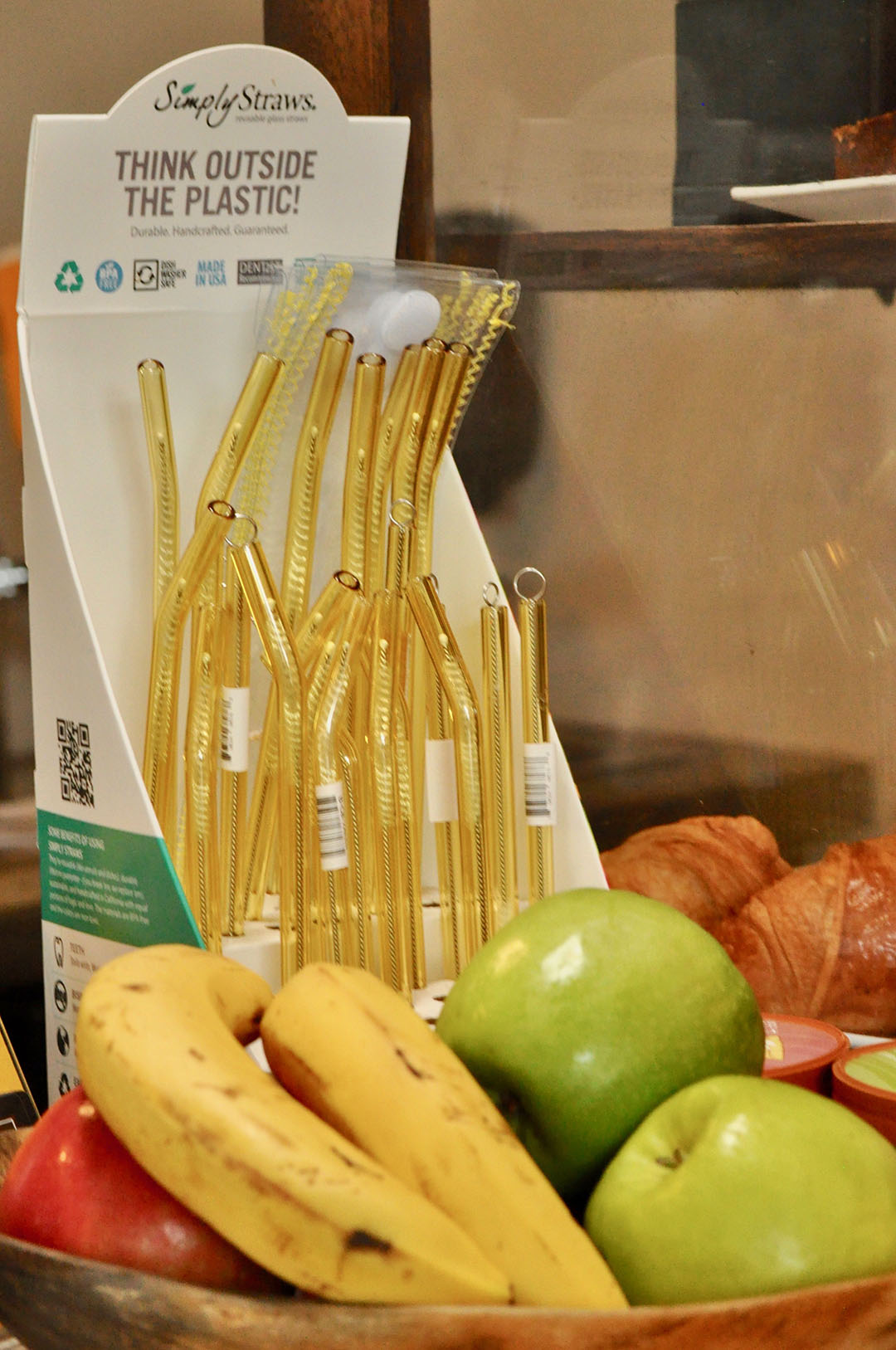Fed up with plastic straws polluting our waters, St. Pete has issued an embargo and Clearwater Beach is hoping to ride the same wave.
Ordering an iced coffee to go? If you live in St. Petersburg, you might want to throw a reusable straw in your bag. Residents of the ’Burg are having to rethink the way they sip this year now that a plastic straw ban has taken effect across the city. On Dec. 13, city council members voted 5-2 to ban the use of single-use plastic straws. The law partially went into effect Jan. 1, mandating businesses in the city to offer straws by request only. Come 2020, all plastic straws will be prohibited, except at drive-thru windows, hospitals, supermarkets and convenience stores. Also outlawed: polystyrene, otherwise known as Styrofoam.
Whether you can’t imagine pulling out a $12 stainless steel straw to suck down your Big Gulp, or you’ve already invested in the latest silicone designs, the rage against plastic is on, and as of late straws are the most insidious (and easily scrapped) offender.
Lauded as monumental by environmental groups and eco-conscious business leaders, the new St. Pete ordinance has given more oomph to the straws-suck movement sweeping across coastal communities. For nearly a year, the effort was buoyed by the support of high-profile restaurants (Parkshore Grille, BellaBrava, Cassis, The Melting Pot, Sea Salt, Ceviche), coffee shops (Kahwa Coffee, Grass Roots Kava House, Black Crow Coffee Co.) and dozens of other local haunts (Mandarin Hide, Joey Brooklyn’s, Craft Kafe, Casita Taqueria, Ciccio Cali, Three Birds Tavern and Park & Rec, to name a few).
When St. Petersburg City Council member Gina Driscoll — together with ilovetheburg.com and Bank of the Ozarks — rolled out the “No Straws St. Pete” campaign last April, more than 100 local establishments jumped on board. Even major race events pledged to go straw-free, along with franchises such as Hooters and Crabby Bills.
In the last year alone, Seattle, Malibu and Fort Myers Beach have laid down straw laws. In 2012, Miami Beach made national headlines when it became the first U.S. city to yank straws from hotels and restaurants. Now New York City is considering passing a similar ban.
The driving force behind the straw shun? This statistic: Americans use 500 million straws a day, a fact that some critics claim is an unverified guesstimate. Nonetheless, discarded sip sticks are turning up by the truckload in our oceans. While scientists say these seemingly innocuous utensils account for only 4 percent of plastic ocean debris, they’re nonetheless polluting our waters and choking our marine life.
“I think once everyone realizes the magnitude of our plastic consumption, stuff like this won’t even be a big deal,” says Sheri Heilman, owner of Beachcomber and Bobby’s Bistro & Wine Bar on Clearwater Beach. “My daughter and son-in-law live in Oregon. They’ve got a garbage can that gets pick-up once a month; the rest is recycling. It’s not even a conversation over there. It’s just a way of life.”
Heilman, who also owns a 60-acre vineyard in Oregon, is not surprised straws were nixed in St. Pete. The restaurateur has been leading a similar charge on Clearwater Beach with her Ocean Allies program, which launched in October at Clearwater Marine Aquarium with the intention of getting all Clearwater Beach businesses to switch from single-use plastics to biodegradable materials.
Heilman, whose Beachcomber received recognition by the Suncoast Rise Above Plastics Coalition for being Clearwater’s first Ocean Friendly Business, says most of her colleagues in the hospitality industry are cool with the coming sea change.
“The Sandpearl got its Ocean Friendly certification,” Heilman says. “The fact is once you make the commitment to go plastic-free, you start generating more business because of it. People come from all over the world to walk on our beaches. The Europeans want to stay at ocean-friendly resorts and eat at ocean-friendly restaurants. They live like this in their real lives and they want that to carry over into their vacations.”
Two-and-a-half years ago, Heilman did something considered drastic for the owner of a 70-year-old Clearwater Beach mainstay. Disgusted by the amount of plastic washing up on our shores, Heilman pulled all the Styrofoam cups, plastic containers and single-use plastic bags and straws out of her restaurants. The transition took some time and effort, but it wasn’t a Sisyphean undertaking. She tracked down a local distributor of biodegradable products and formed a local coop of likeminded business owners to help offset the cost of purchasing supplies. Next, she co-chaired a task force — Protect Clearwater Beach — and signed on as co-founder of the Ocean Allies project.
In December, the organization hosted Feast on the Beach at the Wyndham Grand, the first zero-waste event on Clearwater Beach.
“We had Suncoast Compost there recycling and composting everything everybody used,” Heilman says. “Not a single person complained that they couldn’t get a straw. They adapted. It’s a matter of educating the public. It’s on us to train the average person to realize these lifestyle changes are good.”
”






